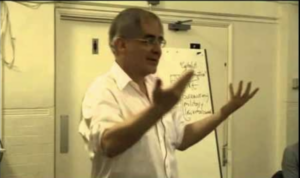
Loren Goldner, activist and writer, passed away in Philadelphia on April 12, 2024. We first met through exchanging letters in July 1997.

Loren Goldner, activist and writer, passed away in Philadelphia on April 12, 2024. We first met through exchanging letters in July 1997.
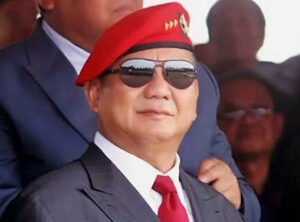
Although only just elected, the trajectory of a Prabowo presidency is clear. At best, he will continue Jokowi’s policies, and at worst, he will take the nation in the same direction as the ill-fated Suharto regime.
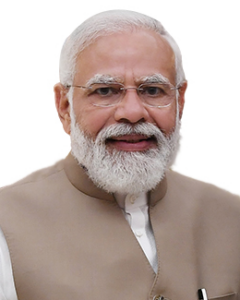
Aparna Sundar analyzes the basis of Modi’s authoritarian rule in India, including Hindutva, predatory capitalism, populist performance, and repression.
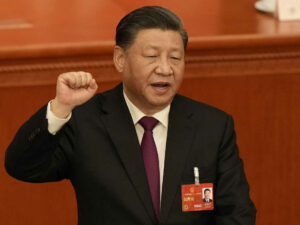
Given China’s drivers, it’s difficult to imagine how this trend could be halted or reversed short of the collapse or overthrow of the CCP. That’s coming but of course it’s impossible to predict when.
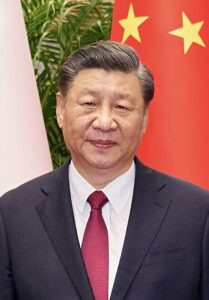
If Xi’s Chinese-style modernization has shattered the myth that modern-is-Western, then why is his economy still so dependent on Western science and technology?
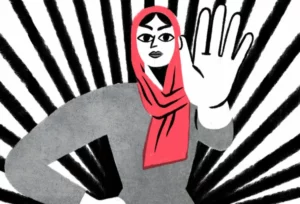
The people of Palestine have suffered from multiple oppressions for many years. Their homeland was occupied. They lost many of their youth. Their intellectuals were exiled or killed. Their children experienced war and explosions. Women experienced the loss of their . . .

In fact, China’s “miracle” was neither an “unprecedented feat” nor as rapid as the modernizations of its own East Asian neighbors, let alone characterized by “long-term social stability.”

Xi’s “new type civilization” is the opposite of all this. Instead of enlightenment, emancipation, freedom, critical thinking, science and democracy.
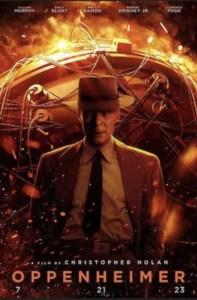
After the bait-and-switch bombing of Japan, the appalled leader of the Manhattan Project, J. Robert Oppenheimer, embarks on a public crusade for a future free of nuclear holocaust, thinking that great minds will save the people.

The ties between India and Russia, and a call for the Indian left to support Ukraine against the Russian invasion.
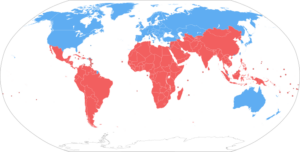
In the month of the first anniversary of Russia’s illegal and brutal full-scale invasion of Ukraine, president Volodymyr Zelensky held a speech at the European Parliament, where he declared Russia to be “the biggest anti-European force of the modern world”[1]. By . . .

The history of the Lanka Sama Samaja Party in Sri Lanka and its leading role in establishing workers’ councils across the public sector in the 1970s.
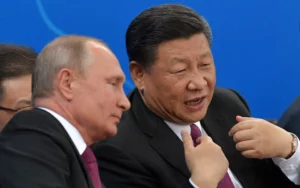
When one surveys the history of American interventionism in other countries—from Brazil to Guatemala, from Cuba to Chile, from Mossadegh’s Iran to Grenada and Nicaragua—and when we contemplate . . .
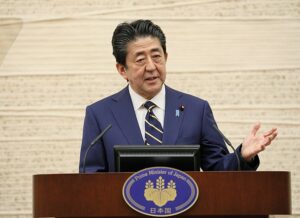
Donald C. Wood assesses the failed record of economic policies pursued by Shinzo Abe, right-wing former Prime Minister of Japan.

More than just the lockdown, what motivates these protests is people’s sense of not being heard in a political system that so arrogantly disregards popular opinions.
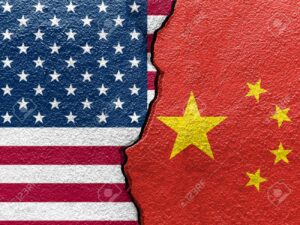
The United States has long dominated Latin America, but today—in fact for the last twenty years—it is being challenged by China, which has invested billions and established political and some military relationships with many governments in the region.
The crisis demands a radical shift in our approach to beings, nature and everything that comprises the planet (and beyond).

Modi’s India, Putin’s Russia, Bolsonaro’s Brazil, Orban’s Hungary, and soon Giorgia Meloni’s Italy and maybe Trump II’s United States, the picture is far from being exhaustive but it still gives an idea of the seriousness of the threat that now hangs over humanity.
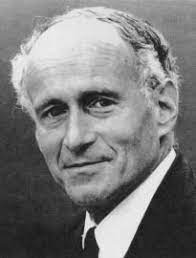
The first of an occasional series of articles on the lives of figures of the French left.
For more than a decade, from 1936 to 1947, Laurent Schwartz (1915-2002), the famous mathematician, was a Trotskyist in France, though that was only one . . .

Peter Ranis discusses repression, exploitation, and ecological devastation in China’s authoritarian capitalism.